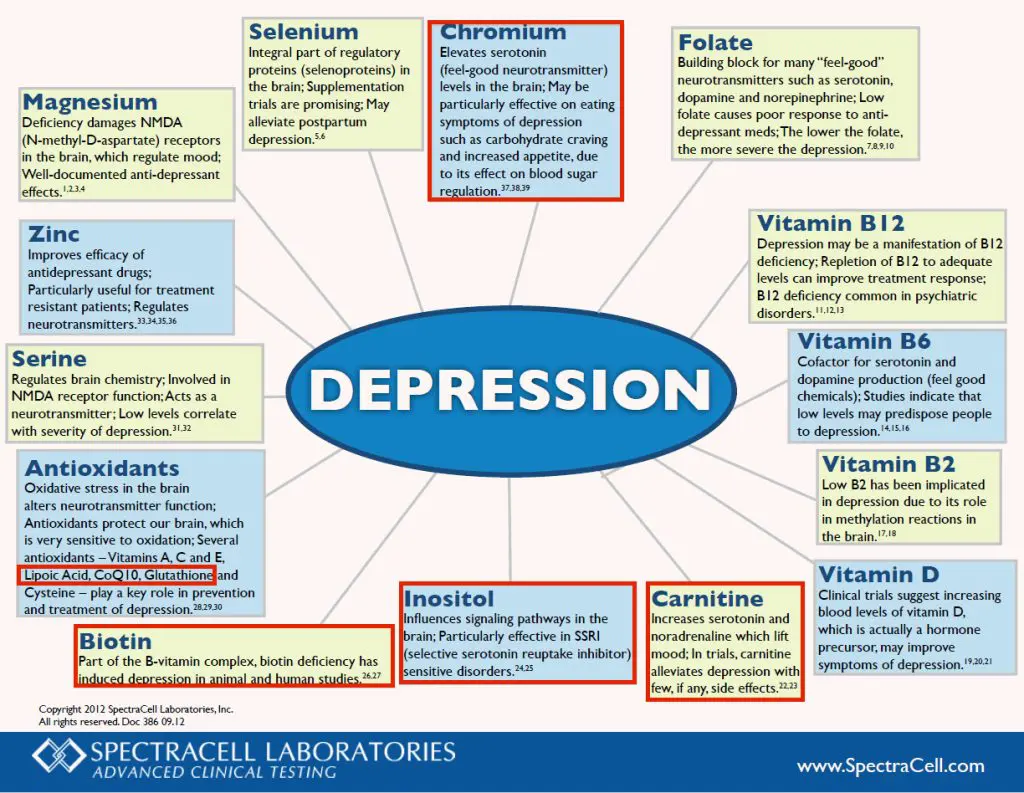په دې وروستیو کلونو کې، د خوړو او رواني روغتیا ترمنځ اړیکې ته لیوالتیا مخ په زیاتیدو ده. د رواني روغتیا مسلو لکه خپګان او اضطراب د زیاتوالي سره، څیړونکي د ځینې رژیمونو احتمالي اغیزې په ټولیزه هوساینې باندې سپړنه کوي. یو رژیم چې پدې برخه کې شهرت ترلاسه کړی ویګانیزم دی، چې یوازې د نباتاتو پر بنسټ محصولاتو مصرف کول او د ټولو څارویو محصولاتو څخه ډډه کول پکې شامل دي. پداسې حال کې چې د ویګان ژوند طرزالعمل په عمده توګه د اخلاقي او چاپیریالي اندیښنو سره تړاو لري، د شواهدو یو راڅرګندیدونکی بدن شتون لري چې وړاندیز کوي چې دا ممکن په رواني روغتیا هم مثبت اغیزه ولري. دا پوښتنه راپورته کوي: ایا د ویګان رژیم غوره کول تاسو خوشحاله کولی شي؟ پدې مقاله کې، موږ به د خوړو او رواني روغتیا ترمنځ احتمالي اړیکې ته پام وکړو، په ځانګړې توګه د ویګانیزم رول باندې تمرکز کوو. د اوسنیو څیړنو او متخصصینو نظرونو په معاینه کولو سره، موږ موخه لرو چې یو جامع پوهه چمتو کړو چې ایا ویګانیزم واقعیا د یو چا په احساساتي هوساینې اغیزه کولی شي.

د نباتاتو پر بنسټ خواړه او رواني روغتیا
ګڼ شمېر مطالعاتو د غذايي انتخابونو او رواني روغتیا پایلو ترمنځ د اړیکو په اړه څیړنې ته پام کړی دی، دا څېړنه کوي چې ایا د سبزیجاتو رژیم کولی شي د ښه ذهني هوساینې سره مرسته وکړي. په تغذیه ژورنال کې خپره شوې یوه څیړنه وموندله چې هغه اشخاص چې د نباتاتو پر بنسټ رژیم تعقیبوي د هغو کسانو په پرتله چې د حیواني محصولاتو لوړ رژیم مصرفوي د فشار، اضطراب او خپګان ټیټه کچه راپور ورکوي. دا د مغذي موادو لرونکي میوو، سبزیجاتو، ټول غلو او دانو لوړ مصرف ته منسوب کیدی شي، کوم چې د ویټامینونو، منرالونو او انټي اکسیډنټ څخه بډایه دي چې د دماغ روغتیا ملاتړ کوي. سربیره پردې، د نباتاتو پر بنسټ رژیم معمولا پروسس شوي خواړه او اضافه شوي بوره خارجوي، کوم چې د رواني روغتیا منفي اغیزو سره تړاو لري. په هرصورت، د لیدل شوي ګټو تر شا دقیق میکانیزمونو ټاکلو او د ژوند طرزالعمل نورو فکتورونو حساب کولو لپاره چې ممکن رواني هوساینې اغیزه وکړي ډیرې څیړنې ته اړتیا ده. سره له دې، د نباتاتو پر بنسټ رژیم غوره کول ممکن د رواني روغتیا او عمومي هوساینې لوړولو لپاره یو امید لرونکی چلند وي.
په مزاج باندې د خوړو اغیز
کله چې د خوړو اغېز په مزاج باندې څېړل کېږي، نو اړینه ده چې د خوړو عمومي بڼه په پام کې ونیول شي، نه یوازې د ځانګړو خوړو انتخابونو باندې تمرکز وشي. د امریکا د کلینیکي تغذیې په ژورنال کې د خپرو شویو مطالعاتو بیاکتنه وموندله چې د میوو، سبزیجاتو، ټول غلو، غوړو پروټینونو او صحي غوړو څخه بډایه خواړه د خپګان او اضطراب کم خطر سره تړاو لري. له بلې خوا، پروسس شوي خواړه، تصفیه شوي بوره، او غیر صحي غوړ لرونکي خواړه د رواني روغتیا اختلالاتو د زیاتوالي خطر سره تړاو لري. دا وړاندیز کوي چې متوازن او مغذي رژیم، پرته له دې چې دا د څارویو محصولات شامل وي یا نه، کولی شي په مزاج او عمومي ذهني هوساینې مثبت اغیزه وکړي. سربیره پردې، د انفرادي توپیرونو، جینیاتي تعصبونو، او کلتوري اغیزو په څیر عوامل هم په دې کې رول لوبوي چې خواړه څنګه مزاج اغیزه کوي. له همدې امله، دا مهمه ده چې موضوع ته د جامع لید سره مراجعه وشي، د خوړو او رواني روغتیا پایلو ترمنځ پیچلي تعامل په پام کې نیولو سره.
د کولمو روغتیا رول
د غذايي انتخابونو او رواني روغتیا پایلو ترمنځ د اړیکو په اړه څیړنې ته په کتو سره، دا مقاله به دا وپلټي چې ایا د ویګن رژیم کولی شي د ښه ذهني هوساینې سره مرسته وکړي. یو مهم اړخ چې باید په پام کې ونیول شي د کولمو روغتیا رول دی. د کولمو مایکروبیوټا، د مایکرو ارګانیزمونو یوه پیچلې ټولنه چې په هاضمي لاره کې ژوند کوي، د مزاج او ادراکي فعالیت تنظیم کولو کې مهم رول لوبوي. مطالعاتو ښودلې چې د نبات پر بنسټ رژیم، چې په فایبر کې بډایه او د نباتاتو پر بنسټ خواړو کې متنوع دی، کولی شي د کولمو صحي مایکروبیوټا جوړښت ته وده ورکړي. دا، په بدل کې، ممکن د سوزش کمولو، د نیوروټرانسمیټر تولید زیاتولو، او د فشار اداره کولو لپاره د بدن وړتیا ښه کولو سره په رواني روغتیا مثبت اغیزه ولري. په هرصورت، دا باید په پام کې ونیول شي چې پداسې حال کې چې د ویګن رژیم کولی شي دا احتمالي ګټې چمتو کړي، نور عوامل لکه د رژیم عمومي کیفیت او انفرادي بدلونونه ممکن د کولمو روغتیا او رواني هوساینې باندې هم اغیزه وکړي. له همدې امله، د رژیم، کولمو روغتیا، او رواني روغتیا ترمنځ د اړیکې جامع معاینه اړینه ده ترڅو د خوښۍ او عمومي ذهني هوساینې باندې د ویګن رژیم احتمالي اغیزې په بشپړ ډول پوه شي.
د مغذي موادو کمښت او خپګان
د مغذي موادو کمښت له اوږدې مودې راهیسې د مختلفو روغتیايي ستونزو سره تړاو لري، او نوې څیړنې ښیي چې دوی ممکن د خپګان په پراختیا او پرمختګ کې هم رول ولوبوي. ډیری مهم مغذي مواد د غوره رواني روغتیا لپاره مهم پیژندل شوي، پشمول د اومیګا-۳ غوړ اسیدونه، B ویټامینونه، ویټامین ډي، مګنیزیم او زنک. په دې مغذي موادو کې کمښت د خپګان او نورو مزاجي اختلالاتو د زیاتوالي خطر سره تړاو لري.
د اومیګا ۳ غوړ اسیدونه، چې په غوړو کبانو، زغرو تخمونو او اخروټ کې موندل کیږي، د دماغ روغتیا لپاره اړین دي او ښودل شوي چې د التهاب ضد او عصبي محافظتي اغیزې لري. د B ویټامینونه، په ځانګړې توګه فولیټ، ویټامین B6، او ویټامین B12، د نیوروټرانسمیټرونو لکه سیروټونین او ډوپامین په تولید کې دخیل دي، کوم چې د مزاج تنظیمولو لپاره اړین دي. ویټامین ډي، چې ډیری وختونه د "لمرشین ویټامین" په نوم یادیږي، نه یوازې د هډوکو روغتیا لپاره خورا مهم دی بلکې د دماغ فعالیت او مزاج تنظیمولو کې هم رول لوبوي.
مګنیزیم او زنک هغه منرالونه دي چې په بدن کې په ګڼ شمېر بایو کیمیکل تعاملاتو کې دخیل دي، په شمول د هغو چې د نیوروټرانسمیټر ترکیب او فعالیت پورې اړه لري. د دې منرالونو ټیټه کچه د خپګان او اضطراب د زیاتوالي خطر سره تړاو لري.
د غذايي مداخلو یا ضمیمه کولو له لارې د مغذي موادو کمښت حل کول ممکن د رواني هوساینې د ښه کولو او د خپګان د خطر کمولو لپاره یوه هیله بښونکې لاره وړاندې کړي. په هرصورت، دا مهمه ده چې په یاد ولرئ چې د مغذي موادو کمښت د رواني روغتیا د پیچلې معما یوازې یوه برخه ده. نور عوامل، لکه جینیات، د ژوند طرز انتخابونه، او ټولنیز ملاتړ، هم مهم رول لوبوي. له همدې امله، یو جامع چلند چې د مغذي موادو بډایه رژیم د نورو شواهدو پر بنسټ ستراتیژیو سره یوځای کوي، لکه درملنه او د فشار مدیریت تخنیکونه، احتمال لري چې د غوره رواني روغتیا په وده کې خورا اغیزمن وي.

ویګانیزم او د التهاب کمول
د غذايي انتخابونو او رواني روغتیا پایلو ترمنځ د اړیکو په اړه څیړنې ته په کتو سره، دا مقاله به دا وپلټي چې ایا د ویګن رژیم کولی شي د ښه رواني هوساینې سره مرسته وکړي. د رواني روغتیا په اړه د هغې د احتمالي اغیزو سربیره، ویګنیزم په بدن کې د سوزش کمولو لپاره د هغې د وړتیا لپاره پاملرنه راجلب کړې ده. اوږدمهاله سوزش د روغتیا شرایطو سره تړاو لري، پشمول د زړه ناروغۍ، شکر ناروغۍ، او ځینې رواني روغتیا اختلالات. د څارویو محصولاتو له مینځه وړلو او د بډایه نباتاتو پر بنسټ خواړو ، هغه اشخاص چې د ویګن رژیم ته غاړه ایږدي ممکن په خپلو بدنونو کې د سوزش نښه کونکو کمښت تجربه کړي. دا په بالقوه توګه د رواني روغتیا پایلو ته ژباړل کیدی شي، ځکه چې سوزش د مزاج اختلالاتو لکه خپګان او اضطراب په پراختیا او پرمختګ کې ښکیل دی. د ځانګړو میکانیزمونو سپړلو لپاره نورو څیړنو ته اړتیا ده چې له لارې یې ویګنیزم ممکن سوزش او رواني هوساینې اغیزه وکړي، مګر لومړني شواهد وړاندیز کوي چې د نبات پر بنسټ رژیم غوره کول ممکن په دواړو برخو کې احتمالي ګټې وړاندې کړي.
د خوښۍ او ویګانیزم څیړنې موندنې
د ویګانیزم او خوښۍ ترمنځ د اړیکو په اړه څیړنې په زړه پورې موندنې ترلاسه کړې دي. د وارویک پوهنتون لخوا ترسره شوې یوه څیړنه وموندله چې هغه اشخاص چې د ویګان رژیم تعقیبوي د هغو کسانو په پرتله چې د څارویو محصولات یې مصرف کړي د عمومي خوښۍ لوړه کچه راپور کړې. دا د مختلفو فکتورونو له امله کیدی شي، پشمول د ویګانیزم سره تړلي اخلاقي باورونه، د چاپیریال مسؤلیت احساس، او د نباتاتو پر بنسټ د رژیم احتمالي روغتیا ګټې. د اغیزمن اختلالاتو په ژورنال کې خپره شوې یوه بله څیړنه وموندله چې ویګان اشخاصو د فشار او اضطراب ټیټه کچه راپور کړې، چې په رواني هوساینې باندې احتمالي مثبت اغیزه وړاندیز کوي. دا موندنې لومړني شواهد وړاندې کوي چې د دې مفکورې ملاتړ کوي چې د ویګان ژوند طرز غوره کول ممکن د خوښۍ زیاتوالي او د رواني روغتیا پایلو ښه کولو کې مرسته وکړي. په هرصورت، د دې اتحادیو تر شا میکانیزمونو په بشپړ ډول پوهیدو او د خوښۍ او هوساینې په اړه د ویګانیزم اوږدمهاله اغیزو ټاکلو لپاره ډیرو جامع څیړنو ته اړتیا ده.
د ویګن رژیم او ښه شوی ادراک
د غذايي انتخابونو او رواني روغتیا پایلو ترمنځ د اړیکو په اړه څیړنې ته په کتو سره، دا مقاله به وپلټي چې ایا د ویګن رژیم کولی شي د ښه ادراکي فعالیت سره مرسته وکړي. پداسې حال کې چې په ځانګړي ډول د ویګن رژیم اغیزې په ادراک باندې معاینه کوي محدودې دي، د دماغ روغتیا باندې د نباتاتو پر بنسټ رژیمونو د ټولیز اغیزې په اړه څیړنه احتمالي ګټې وړاندیز کوي. د میوو، سبزیجاتو، ټول غلو او دانو څخه بډایه نباتاتو پر بنسټ رژیمونه اړین مغذي مواد، انټي اکسیډنټ او فایټو کیمیکلونه چمتو کوي چې د دماغ روغتیا ملاتړ کوي. پدې کې اومیګا -3 فیټي اسیدونه، B ویټامینونه، ویټامین ای، او پولیفینول شامل دي، کوم چې د ښه ادراکي فعالیت او د ادراکي کمښت خطر کمولو سره تړاو لري. سربیره پردې، د نبات پر بنسټ رژیم د التهاب ضد ملکیتونه ممکن د الزایمر په څیر د عصبي ناروغیو په وړاندې ساتنه کې مرسته وکړي. د ویګن رژیم او ښه شوي ادراکي پایلو ترمنځ د ډیر مشخص اړیکې رامینځته کولو لپاره نورو څیړنو ته اړتیا ده، مګر موجوده شواهد د راتلونکي څیړنې لپاره ژمنې لارې وړاندیز کوي.
د ویګانیزم سره د اخلاقي اندیښنو حل کول
کله چې د ویګانیزم سره تړلو اخلاقي اندیښنو په اړه بحث کیږي، نو دا څرګنده کیږي چې دا د خوړو انتخاب د شخصي روغتیا څخه هاخوا پراخیږي او د ارزښتونو پراخه ټولګه پکې شامله ده. د ویګان ژوند طرز غوره کول ډیری وختونه د څارویو لپاره د زیان کمولو، پایښت ته وده ورکولو او چاپیریال ته د درناوي غوښتنې لخوا پرمخ وړل کیږي. د اخلاقي نظر څخه، ویګان د ټولو ژوندیو موجوداتو په ذاتي ارزښت او حقونو باور لري، او پدې توګه، د څارویو محصولاتو مصرف کولو څخه ډډه کول غوره کوي. پدې کې نه یوازې غوښه او لبنیات شامل دي بلکه د څارویو څخه ترلاسه شوي محصولات هم شامل دي، لکه چرم او ویښتان. د ویګانیزم په منلو سره، افراد هدف لري چې خپل د خوړو انتخابونه د خپلو اخلاقي اصولو سره سمون ولري، د یو ډیر مهربان او دوامداره نړۍ رامینځته کولو په لټه کې دي. د ویګانیزم اخلاقي اړخ د هغو کسانو د پریکړو او چلندونو په جوړولو کې د پام وړ رول لوبوي چې دا ژوند طرز مني.

د ویګانیزم ته د لیږد لپاره لارښوونې
د ویګانیزم په لور سفر پیل کول دواړه په زړه پورې او ننګونکي کیدی شي. د لیږد اسانه کولو او د نباتاتو پر بنسټ رژیم ته د بریالي بدلون ډاډ ترلاسه کولو لپاره، دا ګټوره ده چې یو څو مهم لارښوونې تعقیب کړئ. لومړی او تر ټولو مهم، د نباتاتو پر بنسټ تغذیه په اړه ځان پوهول اړین دي. د ځانګړو مغذي موادو پوهیدل چې ستاسو بدن ورته اړتیا لري او څنګه یې د ویګان سرچینو څخه ترلاسه کړئ به ډاډ ترلاسه کړي چې تاسو متوازن رژیم وساتئ. سربیره پردې، په تدریجي ډول د ناڅاپي بدلون هڅه کولو پرځای په خپل معمول کې د نباتاتو پر بنسټ ډیر خواړه شاملول کولی شي لیږد ډیر مدیریت کړي. د نوي ترکیبونو سره تجربه کول، ستاسو د خوښې خواړو لپاره د ویګان بدیلونه سپړنه، او د ویګان ټولنو یا آنلاین سرچینو څخه ملاتړ غوښتل هم کولی شي د لارې په اوږدو کې ارزښتناکه لارښوونې او الهام چمتو کړي. په پای کې، دا خورا مهمه ده چې خپل بدن ته غوږ ونیسئ او د اړتیا سره سم سمونونه وکړئ. هر فرد ځانګړی دی، او ځینې ممکن د دوی د تغذیې اړتیاو پوره کولو لپاره اضافي ضمیمې یا تعدیلاتو ته اړتیا ولري. د پوهې، صبر او انعطاف سره د ویګانیزم ته د لیږد په نږدې کیدو سره، تاسو کولی شئ د نباتاتو پر بنسټ ژوند کولو ته د بریالي او بشپړونکي سفر لپاره لاره هواره کړئ.
د انفرادي چلند اهمیت
د رواني روغتیا لپاره د احتمالي ګټو لپاره د ویګن رژیم غوره کول د انفرادي اړتیاو او غوره توبونو بشپړې ازموینې ته اړتیا لري. د رژیم انتخابونو او رواني روغتیا پایلو ترمنځ د اړیکې په اړه څیړنې ته په کتو سره، دا مقاله به وپلټي چې ایا د ویګن رژیم کولی شي د ښه رواني هوساینې سره مرسته وکړي. پداسې حال کې چې ځینې مطالعې د نباتاتو پر بنسټ رژیمونو او ښه رواني روغتیا ترمنځ اړیکه وړاندیز کوي، دا خورا مهمه ده چې وپیژندل شي چې د هر شخص سفر او د رژیم بدلونونو ته غبرګون ځانګړی دی. د شخصي بایو کیمیا، ځانګړي تغذیې اړتیاوې، او احتمالي اساسي رواني روغتیا شرایط هم باید په پام کې ونیول شي. له همدې امله، د ویګن رژیم او رواني روغتیا ترمنځ د اړیکو سپړلو پرمهال د انفرادي چلند غوره کول د هوساینې غوره کولو او مطلوب پایلو ترلاسه کولو لپاره کلیدي ده. د رژیم انتخابونو تنظیم کولو او د مسلکي لارښوونې په لټه کې، افراد کولی شي د خپلو اړتیاو جامع پوهاوي سره د رژیم او رواني روغتیا تقاطع ته لاړ شي.
په پایله کې، که څه هم د رژیم او رواني روغتیا ترمنځ اړیکه پیچلې ده، څیړنې وړاندیز کوي چې د ویګن رژیم تعقیب ممکن په مزاج او عمومي هوساینې مثبت اغیزې ولري. پداسې حال کې چې د دې اړیکې په بشپړ ډول پوهیدو لپاره ډیرو مطالعاتو ته اړتیا ده، زموږ په رژیم کې د بشپړ، نباتاتو پر بنسټ خواړو شاملول یوازې زموږ په فزیکي او رواني روغتیا مثبت اغیزې کولی شي. که د ویګن رژیم د خوښۍ کلیدي وي یا نه، دا یقینا زموږ د ژوند عمومي کیفیت ښه کولو وړتیا لري. د تل په څیر، دا مهمه ده چې زموږ بدنونو ته غوږ ونیسو او داسې انتخابونه وکړو چې زموږ د انفرادي اړتیاو او غوره توبونو سره سمون ولري.
پوښتنې او ځوابونه
د خوړو او رواني روغتیا ترمنځ اړیکه څه ده؟ هغه څه چې موږ یې خورو زموږ په مزاج او عمومي هوساینې څنګه اغیزه کوي؟
د خوړو او رواني روغتیا ترمنځ قوي اړیکه شتون لري. هغه څه چې موږ یې خورو کولی شي زموږ په مزاج او عمومي هوساینې خورا اغیزه وکړي. په خوړو کې موندل شوي ځینې مغذي مواد، لکه اومیګا-۳ غوړ اسیدونه، B ویټامینونه، او انټي اکسیډنټ، د دماغ روغتیا ملاتړ کوي او د نیوروټرانسمیټر کچه تنظیموي، کوم چې کولی شي زموږ په مزاج او ادراکي فعالیت مثبت اغیزه وکړي. له بلې خوا، پروسس شوي خواړه، بوره، او غیر صحي غوړ لرونکي خواړه کولی شي د سوزش، اکسیډیټیو فشار، او د کولمو باکتریا کې عدم توازن سره مرسته وکړي، چې ټول یې د رواني روغتیا اختلالاتو لکه خپګان او اضطراب د زیاتوالي خطر سره تړاو لري. له همدې امله، د ذهني هوساینې د ودې لپاره د متوازن او مغذي رژیم غوره کول خورا مهم دي.
آیا د ویګن رژیم غوره کول رواني روغتیا او خوښۍ ته وده ورکولی شي؟ ایا په نباتاتو پر بنسټ خواړو کې کوم ځانګړي مغذي مواد یا مرکبات موندل شوي چې د ښه رواني روغتیا سره تړاو لري؟
د ویګن رژیم غوره کول کولی شي د ډیری عواملو له امله رواني روغتیا او خوښۍ ته وده ورکړي. د نباتاتو پر بنسټ خواړه عموما په مغذي موادو لکه ویټامینونو، منرالونو او انټي اکسیډنټونو کې بډایه وي، کوم چې د دماغ روغتیا او فعالیت لپاره ګټور دي. سربیره پردې، د ویګن رژیم معمولا د فایبر لوړه اندازه او د سنتر شوي غوړ ټیټه کچه لري، کوم چې د ښه مزاج او د خپګان خطر کمولو سره تړاو لري. ځینې نباتاتو پر بنسټ خواړه هم مرکبات لري لکه اومیګا -3 غوړ اسیدونه، فولیټ، او مګنیزیم، کوم چې د غوره رواني روغتیا پایلو سره تړاو لري. په هرصورت، دا مهمه ده چې په یاد ولرئ چې انفرادي عوامل، د ژوند طرز انتخابونه، او د رژیم عمومي توازن هم په رواني روغتیا او خوښۍ کې د پام وړ رول لوبوي.
ایا داسې کومې څېړنې یا څېړنې شته چې د دې ادعا ملاتړ وکړي چې ویګانیزم تاسو خوشحاله کولی شي؟ دا څېړنې د ویګان رژیم او رواني روغتیا ترمنځ د اړیکو په اړه څه وړاندیز کوي؟
هو، داسې مطالعات او څیړنې شتون لري چې د ویګانیزم او د خوښۍ زیاتوالي ترمنځ اړیکه وړاندیز کوي. دا مطالعات ښیي چې د ویګان رژیم کولی شي د خپګان، اضطراب او فشار نښې کمولو سره په رواني روغتیا مثبت اغیزه وکړي. د میوو، سبزیجاتو او ټول غلو څخه بډایه د نباتاتو پر بنسټ رژیم اړین مغذي مواد او انټي اکسیډنټ چمتو کوي چې د دماغ روغتیا ملاتړ کوي او مزاج ښه کولی شي. سربیره پردې، د ویګانیزم اخلاقي او چاپیریالي اړخونه ممکن د هدف او بشپړتیا احساس سره مرسته وکړي، چې د خوښۍ زیاتوالي لامل کیږي. په هرصورت، دا مهمه ده چې په یاد ولرئ چې انفرادي تجربې ممکن توپیر ولري، او د ویګان رژیم او رواني روغتیا ترمنځ د اړیکو په بشپړ ډول پوهیدو لپاره ډیرو څیړنو ته اړتیا ده.
ایا د ویګن رژیم غوره کولو کې کوم احتمالي نیمګړتیاوې یا ننګونې شتون لري چې کولی شي رواني روغتیا اغیزه وکړي؟ د مثال په توګه، ایا د محدود خواړو نمونې یا د ویګنیزم سره تړلي د مغذي موادو کمښت کولی شي په رواني هوساینې منفي اغیزې ولري؟
که څه هم د ویګن رژیم صحي کیدی شي، خو احتمالي نیمګړتیاوې هم شتون لري چې کولی شي رواني روغتیا اغیزمنه کړي. د خوړو محدودیتونه ممکن د محرومیت احساساتو لامل شي او په مزاج اغیزه وکړي. د مغذي موادو کمښت، لکه ویټامین B12، اومیګا-3 غوړ اسیدونه، او اوسپنه، چې معمولا د ویګنیزم سره تړاو لري، کولی شي رواني هوساینې باندې هم اغیزه وکړي. په هرصورت، د مناسب خواړو پلان کولو او ضمیمه کولو سره، دا ننګونې کم کیدی شي. دا مهمه ده چې د روغتیا پاملرنې مسلکي یا راجستر شوي تغذیه کونکي سره مشوره وکړئ ترڅو د متوازن ویګن رژیم ډاډ ترلاسه کړئ چې ټول تغذیه اړتیاوې پوره کوي او رواني روغتیا ملاتړ کوي.
د ویګن رژیم اغیز په رواني روغتیا باندې څنګه د نورو رژیمي طریقو سره پرتله کیږي، لکه د مدیترانې رژیم یا د کم کاربوهایډریټ رژیم؟ ایا کوم ځانګړي رژیمونه شتون لري چې په رواني روغتیا باندې قوي مثبت اغیزه ولري؟
د نورو غذايي طریقو په پرتله د ویګن رژیم اغیز په رواني روغتیا باندې، لکه د مدیترانې رژیم یا د کم کاربوهایډریټ رژیم، لا تر اوسه په بشپړه توګه نه دی پوه شوی. پداسې حال کې چې محدودې څیړنې ښیي چې د نبات پر بنسټ رژیم ممکن د مغذي موادو لرونکي خواړو د لوړ مصرف له امله د رواني روغتیا لپاره ځینې ګټې ولري، ډیرو څیړنو ته اړتیا ده. هیڅ دقیق شواهد شتون نلري چې دا تایید کړي چې ځانګړي رژیمونه د نورو په پرتله په رواني روغتیا باندې قوي مثبت اغیزه لري. په هرصورت، یو متوازن او متنوع رژیم چې ټول خواړه، میوې، سبزیجات، کم پروټینونه، صحي غوړ، او محدود پروسس شوي خواړه پکې شامل دي عموما د عمومي ذهني هوساینې لپاره سپارښتنه کیږي.















































